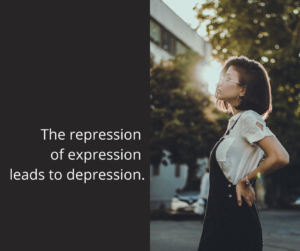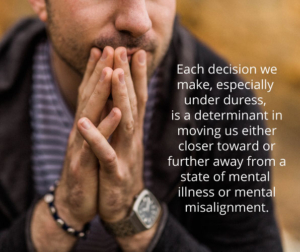Emotional Withdrawal Symptoms and How to Recover
🎧 Listen to this article
Do you feel like taking a step back when things get tough in your life? If so, you may be using emotional withdrawal as a defense. This is a common situation, but it can lead to other problems if not addressed. Newport Beach Christian Counseling offers support to help you navigate and overcome these challenges.
Withdrawal is a coping mechanism for pain. It’s a self-protective measure a person uses to keep from getting hurt again. However, when withdrawal is used over long periods or repeated, it can cause further relational decay.
Reasons for Withdrawal
The reasons for withdrawing can be myriad in number. They can be due to either real or perceived threats to one’s mental, physical, or emotional safety. Here are several common examples of why people may withdraw.
- A boy is bullied at school and withdraws from all social contact with peers.
- A young girl is sexually abused by an uncle and withdraws from all males in her family.
- A wife withdraws from her husband after he has an affair with a coworker.
- A young woman experiences spiritual abuse at church and refuses to attend organized services again.
- A man is treated poorly by his boss and withdraws from social contact with other coworkers.
- A divorced father withdraws from his children.
- An elderly mother refuses to see her adult children.

Shame is often a root of withdrawal. In each example above, the people may partially blame themselves for the mistreatment they received. They may even feel like they deserve poor treatment, due to a damaged self-image. Shame can hold us down and keep us from living the life God intended for us to live.
Real guilt may also be involved in withdrawal situations. While shame is attached to false guilt, real guilt is attached to something we did to hurt others. The divorced father may feel guilty for turning his children’s lives upside down. The elderly mother may feel guilty for prioritizing her career over her children when they were young.
Anger is often a reason for withdrawal. The bullied boy is understandably angry at the bully. Likewise, it’s reasonable for the wife to be angry about her husband’s affair, and the teen girl to be angry over the breakup. Anger is a normal, even healthy, reaction to unwanted changes. But when it is not handled properly, it can cause a person to withdraw.
 Fear can be attached to reasons for withdrawal. Many people who withdraw live in dread of getting hurt so badly again. Though the real threat of danger may have passed, the trauma from the original incident runs deep. The fear of getting hurt again can drive the urge to withdraw.
Fear can be attached to reasons for withdrawal. Many people who withdraw live in dread of getting hurt so badly again. Though the real threat of danger may have passed, the trauma from the original incident runs deep. The fear of getting hurt again can drive the urge to withdraw.
No matter the reason for your withdrawal, a caring Christian counselor can help you deal with it. In many cases, talk therapy is highly effective for handling withdrawal and moving toward healing. Your counselor will be able to help identify the reason for your withdrawal and get you past it.
Signs of Withdrawal
The signs of withdrawal run parallel to the signs for the underlying feelings of shame, guilt, anger, and fear. Here are some signs you may notice if you are withdrawing from others.
- Avoiding eye contact
- One-word answers
- Silent treatment
- Leaving the room when someone enters
- Fear of returning to where the original incidents occurred
- Spending much more time alone than usual
- Not responding to texts, emails or calls
Withdrawal can lead to intense loneliness, and untended loneliness can lead to depression, which can have major risks. These are the signs of depression to watch for:
- Bouts of tearfulness
- Feelings of inappropriate or excessive guilt
- Irritation or uncharacteristically short temper
- Lack of concentration
- Loss of energy even with normal daily activities
- Loss of pleasure or interest in activities you once enjoyed
- Memory problems
- Negative impact on work
- No longer attending normal social engagements
- Restlessness or pacing
- Significant increase or decrease in appetite
- Sleeping too much or experiencing insomnia
- Slow movements or slowed, quiet speech
- Feelings of worthlessness
- Recurring thoughts about death, dying, and suicide
If you have at least three of these symptoms for more than two weeks in a row, it’s important to meet with a counselor. In counseling, you’ll receive the help you need to overcome your depression and start connecting with safe people again.
Emotional Withdrawal Symptoms
 Emotional withdrawal symptoms can last for a few weeks after a trigger incident. If not handled right away, these symptoms can persist for months or even years. You need help to deal with these symptoms, so they don’t exact a heavy toll on your physical and mental well-being.
Emotional withdrawal symptoms can last for a few weeks after a trigger incident. If not handled right away, these symptoms can persist for months or even years. You need help to deal with these symptoms, so they don’t exact a heavy toll on your physical and mental well-being.
If you’ve had any of the following symptoms for more than two weeks in a row, it’s time to get help.
- Anxiety
- Depression
- Intense loneliness
- Irrational fears
- Not leaving your home
No one can successfully navigate these problems on their own. We can help you discover the roots of your withdrawal so you can eliminate these symptoms. If you are not making progress on your own, a consultation with a professional can give you a new perspective plus practical tips for recovering.
Recovering from Emotional Withdrawal
To recover from emotional withdrawal, you not only need to deal with the roots of the problem but find new ways of relating to others. A counselor can help you find the solutions, plus role-play improved relationship dynamics. Let’s look at the examples above to see how these people were able to move past withdrawal.
 The boy who was bullied gains some boundary-setting skills with his counselor. He learns to view his classmates as not “all bad” any longer. By taking a few calculated risks, practiced with his counselor, he connects with one child in the class and begins building a friendship.
The boy who was bullied gains some boundary-setting skills with his counselor. He learns to view his classmates as not “all bad” any longer. By taking a few calculated risks, practiced with his counselor, he connects with one child in the class and begins building a friendship.- As the young girl receives counseling, she learns to grieve her losses and heal from the trauma. Her counselor helps her see that while her uncle made very poor choices that hurt her, other males in her family have been consistently loving and kind. She begins taking baby steps toward a closer relationship with her father.
- The wife attends her own counseling sessions in addition to marriage counseling sessions with her husband. As they work to repair and restore their marriage, the wife works on her own tendency to use the silent treatment when she’s hurting. By overcoming that relationship problem, she learns to stay connected to her husband even when they experience conflict.
- The young woman who was spiritually abused walks through the grieving process with her counselor. In her counseling sessions, she learns what personality traits attracted her to the abusive church, and how to overcome those weaknesses. She begins testing out other churches with her friends, not committing to any but keeping her eyes open.
- Through counseling, the man decides he needs to quit this job, mourn the losses, and build up his emotional strength to start a new job. When he finds a new job, he’s better prepared to build connections with coworkers from the start.
- The divorced father deals with his guilt and shame in the counselor’s office. There, he discovers that he still has great worth in God’s eyes and finds the courage to rebuild the relationships with his children.
- The elderly mother talks with a counselor about her past. Though she cannot go back and change anything that happened, she learns that a sincere apology goes a long way toward building bridges. She practices that conversation with her counselor and hopes that her later years will be the best ones yet.
If you are suffering from emotional withdrawal, you can find the same hope and healing as in the examples above. A compassionate Christian counselor is waiting to help. Give us a call today at Newport Beach Christian Counseling to set up a meeting.
“Alone in Church”, Courtesy of Polina Sirotina, Pexels.com, CC0 License; “Grief”, Courtesy of Kat Jayne, Pexels.com, CC0 License; “Workout Partners”, Courtesy of Luis Quintero, Pexels.com, CC0 License; “Cooking Together”, courtesy of August de Richelieu, Pexels.com, CC0 License

 The APA Dictionary of Psychology defines passivity as “a form of adaptation, or maladaptation, in which the individual adopts a pattern of submissiveness, dependence, and retreat into inaction.”
The APA Dictionary of Psychology defines passivity as “a form of adaptation, or maladaptation, in which the individual adopts a pattern of submissiveness, dependence, and retreat into inaction.” We can look to the Bible for examples of how passivity cost people tremendous amounts of heartache and loss. One clear example is Jacob, son of Isaac and Rebekah, as we read in Genesis 25-28. Though his brother Esau was the heir to their father’s inheritance, Jacob passively allowed his mother to manipulate the situation so he would receive the blessing.
We can look to the Bible for examples of how passivity cost people tremendous amounts of heartache and loss. One clear example is Jacob, son of Isaac and Rebekah, as we read in Genesis 25-28. Though his brother Esau was the heir to their father’s inheritance, Jacob passively allowed his mother to manipulate the situation so he would receive the blessing. Emotionally, passivity can exact a heavy toll. You may feel weak and insecure, lacking confidence in your ability to take charge of your life. Passivity can cause anxiety, depression, anger, and other emotional disturbances.
Emotionally, passivity can exact a heavy toll. You may feel weak and insecure, lacking confidence in your ability to take charge of your life. Passivity can cause anxiety, depression, anger, and other emotional disturbances. The parents come up with a 60-day plan for holding their son accountable for finding a job and his own place. They work with a counselor to form talking points for a loving confrontation.
The parents come up with a 60-day plan for holding their son accountable for finding a job and his own place. They work with a counselor to form talking points for a loving confrontation. Underlying medical conditions (such as thyroid or hormonal issues), use or abuse of prescription medication or other substances (alcohol, marijuana, etc.), a lack of adequate nutrition (eating too much sugar or processed foods) or physical activity, and any pre-existing addictions may contribute to the development of depression.
Underlying medical conditions (such as thyroid or hormonal issues), use or abuse of prescription medication or other substances (alcohol, marijuana, etc.), a lack of adequate nutrition (eating too much sugar or processed foods) or physical activity, and any pre-existing addictions may contribute to the development of depression.

 Problematic patterns of intrapersonal relating (the way we relate to ourselves generally as well as how we respond when disappointed, hurt, or rejected) tend to be overlooked and/or misunderstood in terms of their contribution to the development of depression and other mood disorders.
Problematic patterns of intrapersonal relating (the way we relate to ourselves generally as well as how we respond when disappointed, hurt, or rejected) tend to be overlooked and/or misunderstood in terms of their contribution to the development of depression and other mood disorders.


 Fortunately, behavioral changes can be made with the right help and if the individual desires to seek such changes. Cognitive Behavioral Therapy (CBT), for example, is one method that seeks to make incremental adjustments in how the person reacts to situations, aiming for more positivity than before.
Fortunately, behavioral changes can be made with the right help and if the individual desires to seek such changes. Cognitive Behavioral Therapy (CBT), for example, is one method that seeks to make incremental adjustments in how the person reacts to situations, aiming for more positivity than before. The human brain is an amazing phenomenon. It is capable of so many incredible and complicated things, but it can also be a place of great struggle. Human beings fight battles in their minds daily. They battle cognitive distortions that can greatly impact emotions and behavior.
The human brain is an amazing phenomenon. It is capable of so many incredible and complicated things, but it can also be a place of great struggle. Human beings fight battles in their minds daily. They battle cognitive distortions that can greatly impact emotions and behavior.  Control Fallacies: when someone believes the illusion of being in control of everything in their life (whether internally or externally).
Control Fallacies: when someone believes the illusion of being in control of everything in their life (whether internally or externally). Cognitive Behavioral Therapy is an evidence-based form of psychotherapy that focuses on thought patterns- what they are, how to evaluate them, and how to replace them with more accurate and helpful thoughts. The goal is for the altered thoughts to then positively affect one’s emotions and behaviors (as stated earlier about the Cognitive Triangle).
Cognitive Behavioral Therapy is an evidence-based form of psychotherapy that focuses on thought patterns- what they are, how to evaluate them, and how to replace them with more accurate and helpful thoughts. The goal is for the altered thoughts to then positively affect one’s emotions and behaviors (as stated earlier about the Cognitive Triangle). After evaluation, it is necessary to replace. This is how you can literally renew your mind. This is how to train your brain to think differently. For example, instead of allowing yourself to automatically think about getting in a car accident every time you get in your car (which leads to anxiety), you could think something like this, “Well, I do not know anything that will happen in the future. All I know is that right now, I am safe.”
After evaluation, it is necessary to replace. This is how you can literally renew your mind. This is how to train your brain to think differently. For example, instead of allowing yourself to automatically think about getting in a car accident every time you get in your car (which leads to anxiety), you could think something like this, “Well, I do not know anything that will happen in the future. All I know is that right now, I am safe.” Words can be a funny thing. Over time, their meaning can change and new words come into our vernacular. One word you might be hearing more often is “Enneagram.” For those who don’t know what it is, it might sound like a diagram. Others think it’s a medical tool, like a sonogram. Often people hear it and think it’s something scientific that doesn’t apply to them.
Words can be a funny thing. Over time, their meaning can change and new words come into our vernacular. One word you might be hearing more often is “Enneagram.” For those who don’t know what it is, it might sound like a diagram. Others think it’s a medical tool, like a sonogram. Often people hear it and think it’s something scientific that doesn’t apply to them. The exact origins of the Enneagram personality test are a mystery. It’s an ancient method for understanding human personality. This tool has been used by Christians and other religions around the world for centuries.
The exact origins of the Enneagram personality test are a mystery. It’s an ancient method for understanding human personality. This tool has been used by Christians and other religions around the world for centuries. It can be far too easy to take a personality test and never think about it again. We take the test everyone on Facebook is taking, think “hm, that’s interesting,” post our results, and never think about it again. Even with a tool this transformative, this still happens. There is an urge to find out our type without exploring it so we feel like we fit in is for all of us.
It can be far too easy to take a personality test and never think about it again. We take the test everyone on Facebook is taking, think “hm, that’s interesting,” post our results, and never think about it again. Even with a tool this transformative, this still happens. There is an urge to find out our type without exploring it so we feel like we fit in is for all of us. It seems to be especially difficult to find one’s type if someone has been through trauma, chronic stress, or other challenging situations recently. In those situations, we often lean towards a different type. It’s not at all uncommon for someone to type themselves then study more or come out a chaotic life situation to realize they were actually a different type.
It seems to be especially difficult to find one’s type if someone has been through trauma, chronic stress, or other challenging situations recently. In those situations, we often lean towards a different type. It’s not at all uncommon for someone to type themselves then study more or come out a chaotic life situation to realize they were actually a different type. We all go through times of feeling overwhelmed or overworked. Maybe you think being constantly stressed is normal. Or, maybe you feel like it’s a completely negative condition to have that sense of emotional stress.
We all go through times of feeling overwhelmed or overworked. Maybe you think being constantly stressed is normal. Or, maybe you feel like it’s a completely negative condition to have that sense of emotional stress.  So, if your body reacts to significant life events with specific responses, how can you know how much stress is too much? If you’re noticing signs of stress, or if you’re going through a long season of chronic stress, what can you do to cope? Coping with difficult experiences or life changes helps us build resiliency, the ability to emotionally navigate and withstand hard circumstances.
So, if your body reacts to significant life events with specific responses, how can you know how much stress is too much? If you’re noticing signs of stress, or if you’re going through a long season of chronic stress, what can you do to cope? Coping with difficult experiences or life changes helps us build resiliency, the ability to emotionally navigate and withstand hard circumstances. But, if we are exposed to these hormones consistently for long periods of time, we will start to notice negative health effects and signs of stress, such as digestive problems, sleep problems, headaches, flare-ups in chronic conditions, etc. Mental health issues are also common with long-term stress, including depression and anxiety.
But, if we are exposed to these hormones consistently for long periods of time, we will start to notice negative health effects and signs of stress, such as digestive problems, sleep problems, headaches, flare-ups in chronic conditions, etc. Mental health issues are also common with long-term stress, including depression and anxiety. Even if you can’t eliminate the causes of your stress, there is still hope for you. There are resources that can help you live your best life even in the midst of a situation you can’t change. There are measures you can take to care for yourself in the midst of toxic or tragic situations.
Even if you can’t eliminate the causes of your stress, there is still hope for you. There are resources that can help you live your best life even in the midst of a situation you can’t change. There are measures you can take to care for yourself in the midst of toxic or tragic situations. Many people claim that they are “aware” about the use of therapy for mental illnesses. In fact, on both the big and small screens, characters are often shown visiting a therapist to assist them with their mental or emotional issues.
Many people claim that they are “aware” about the use of therapy for mental illnesses. In fact, on both the big and small screens, characters are often shown visiting a therapist to assist them with their mental or emotional issues. Therapy, however, is meant to be a venue where a person CAN share these inner thoughts, fears, and desires without being judged, ridiculed, or exposed. Professional therapists know this and approach each situation with an open mind, giving unbiased advice on what to do. As they are not personally involved, it is sometimes even easier for them to notice things that family members and friends cannot see; or share the advice that loved ones with vested interests do not want to say.
Therapy, however, is meant to be a venue where a person CAN share these inner thoughts, fears, and desires without being judged, ridiculed, or exposed. Professional therapists know this and approach each situation with an open mind, giving unbiased advice on what to do. As they are not personally involved, it is sometimes even easier for them to notice things that family members and friends cannot see; or share the advice that loved ones with vested interests do not want to say. Unlike other physical ailments, there is no single solution to each mental health problem. Every client’s background and personality have to be taken into consideration before the right steps can be made. This is why it is important that both the client and therapist are able to work well with one another.
Unlike other physical ailments, there is no single solution to each mental health problem. Every client’s background and personality have to be taken into consideration before the right steps can be made. This is why it is important that both the client and therapist are able to work well with one another. Imagine a motor boat. It has all the normal parts an engine, propeller, rudder, compass, and hull. The engine and the propeller allow it to move forward. This is your purpose. The rudder and the compass help it navigate the seas. This is your direction. And finally, the hull makes sure it makes it through stormy seas. This is a thoughtful, well made decision to help you get through adversity. Let’s take a closer look at each of these factors.
Imagine a motor boat. It has all the normal parts an engine, propeller, rudder, compass, and hull. The engine and the propeller allow it to move forward. This is your purpose. The rudder and the compass help it navigate the seas. This is your direction. And finally, the hull makes sure it makes it through stormy seas. This is a thoughtful, well made decision to help you get through adversity. Let’s take a closer look at each of these factors. When we consider our personal development goals, we consider them in connection with our general calling as children of God. Once you move beyond our general calling given by God, you can begin to consider your individual purpose and calling. Maybe you haven’t really considered your individual purpose before if so, that’s okay!
When we consider our personal development goals, we consider them in connection with our general calling as children of God. Once you move beyond our general calling given by God, you can begin to consider your individual purpose and calling. Maybe you haven’t really considered your individual purpose before if so, that’s okay! The second important aspect of personal development goals is to provide direction. If you’ve ever wondered what you are doing with your life and felt like you were going nowhere, then you probably weren’t setting up goals guided by your direction.
The second important aspect of personal development goals is to provide direction. If you’ve ever wondered what you are doing with your life and felt like you were going nowhere, then you probably weren’t setting up goals guided by your direction. Finally, personal development goals need to be made in such a way that sets you up for success. If your plan is to “get to Mars,” you’re not likely to achieve your goal. But, if you are in NASA or the Air Force, then maybe it might work out.
Finally, personal development goals need to be made in such a way that sets you up for success. If your plan is to “get to Mars,” you’re not likely to achieve your goal. But, if you are in NASA or the Air Force, then maybe it might work out. For those who follow Christ, the meaning of spiritual development is more specific. According to Acts 17:28, “… in him we live and move and have our being.” Our core nature, desire for significance and purpose, and our sense of belonging are derived from God himself, as he transforms us through Jesus Christ and his infallible, unchanging Word.
For those who follow Christ, the meaning of spiritual development is more specific. According to Acts 17:28, “… in him we live and move and have our being.” Our core nature, desire for significance and purpose, and our sense of belonging are derived from God himself, as he transforms us through Jesus Christ and his infallible, unchanging Word. When a Christian is first born again, this stage can be called spiritual infancy. It is characterized, just as in Erikson’s model, by the tension between trust and mistrust, or a strong faith in God vs. despair and sadness, and a feeling that God is unreliable. For a believer, this tension is resolved by embracing hope in Christ through faith, which will last a lifetime.
When a Christian is first born again, this stage can be called spiritual infancy. It is characterized, just as in Erikson’s model, by the tension between trust and mistrust, or a strong faith in God vs. despair and sadness, and a feeling that God is unreliable. For a believer, this tension is resolved by embracing hope in Christ through faith, which will last a lifetime. Again, we must remember that sanctification is a process. God’s love compels Christians to “press on toward the goal to win the prize for which God has called [us] heavenward in Christ Jesus” (Philippians 3:14). This is both our eternal destiny and our temporal pursuit.
Again, we must remember that sanctification is a process. God’s love compels Christians to “press on toward the goal to win the prize for which God has called [us] heavenward in Christ Jesus” (Philippians 3:14). This is both our eternal destiny and our temporal pursuit. Calling is defined as follows: “A calling is a transcendent summons, experienced as originating beyond the self, to approach a particular life role in a manner oriented toward demonstrating or deriving a sense of purpose or meaningfulness and that holds other-oriented values and goals as primary sources of motivation” (Dik & Duffy, 2009, p. 427).
Calling is defined as follows: “A calling is a transcendent summons, experienced as originating beyond the self, to approach a particular life role in a manner oriented toward demonstrating or deriving a sense of purpose or meaningfulness and that holds other-oriented values and goals as primary sources of motivation” (Dik & Duffy, 2009, p. 427).